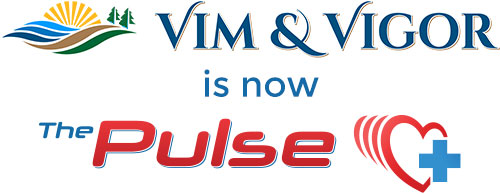Notice: All Health Screenings are postponed until further notice.
Additionally, the Spring 2020 Pulse Newsletter will likely be delayed until the end of April.
 A Health Newsletter Serving the North Coast Schools Medical Insurance Group
A Health Newsletter Serving the North Coast Schools Medical Insurance Group
Winter 2020
In this Issue: Welcome to the Pulse! | Health Screening Time | Save a Life! Donate Blood

Welcome to The Pulse!
One of the truest truisms in life is that the only constant is change. And after nearly 30 years, we decided it was time for our newsletter to change.
The monthly newsletter Vim & Vigor served its purpose well, but we are proud to bring you its successor, a new quarterly newsletter called The Pulse.
We hope you enjoy this updated format, and look forward to communicating with you in this new era.
It’s Health Screening Time!
Our annual Health Screening kicks off on March 3, 2020 and will run through May 7, 2020.
Our FREE comprehensive Health Screening includes height, weight and blood pressure measurements, a take-home occult blood test and a choice of the TSH (Thyroid stimulating hormone) test or CRP (C-reactive protein) test for heart attack or stroke risk.
It also includes over 50 blood tests, including a comprehensive blood panel, metabolic panel, tests to check liver and kidney function, cholesterol, platelet counts, Glycohemoglobin A1C and more!
Many additional tests are offered at the participant’s own cost (payable to OEHS).
The annual Health Screening provides our members with the opportunity to check-in on their overall health, even if you do go to the doctor for an annual checkup. This benefit is not only free to our members, but also assists in keeping the medical costs of our program down by catching potentially life-threatening conditions early. We provide a full range of tests for our plan members and their spouse or partner.
This screening is offered FREE to NCSMIG Medical plan members and enrolled spouses or domestic partners only. Tests are not offered to dependent children or retirees not covered under the medical plan.
You are free to attend a screening at any location listed on the enclosed schedule. Please call the number listed for that location to sign up for a time slot. If you are able to take a later time, we ask that you do so in order to accommodate those employees that must drive buses or be at school early.
If you have any questions about the program, please feel free to give our office a call at 707-445-7126.
Upcoming Screenings
Notice: All Health Screenings are postponed until further notice.
Save a Life! Donate Blood
January is the beginning of a new year and the perfect time to start the year celebrating National Blood Donor Month.
Due to increased seasonal illnesses during the winter months and inclement weather conditions, donations of blood and platelets decline and demand increases. The American Red Cross and Blood Banks of America encourage everyone that can donate to continue their donations. Those who have never donated are encouraged to make an appointment. Blood donation is safer than ever before and saves lives. Millions of people including cancer patients, organ recipients, and victims of accidents rely on blood donations from people like you and me.
Don’t wait for a disaster, give blood now! Someone somewhere is in need. Contact the American Red Cross or your local blood bank for more information. Use #NationalBloodDonorMonth and #GiveBlood to share on social media. In the sidebar to the right are some of the biggest reasons giving blood is so important.
Did You Know?
- About 36,000 units of red blood cells and 7,000 units of platelets are needed every single day in the U.S.
- The most requested blood type by hospitals is type O. This kind of blood can be transfused to patients of all blood types, so it’s always in great demand and very short supply. Only 7% of people in the U.S. have type O.
- A single car accident victim may need up to 100 pints of blood to survive.
- About 6.8 million people donate blood every year in the U.S.
- 38% of our population is eligible to donate, but less than 10% actually do.
- Donating blood is a simple, safe process. All you have to do is register, take a mini medical history test, donate, and then accept free refreshments like water, Gatorade, granola bars, etc.
- A single donation from a single patient can help more than one person.
